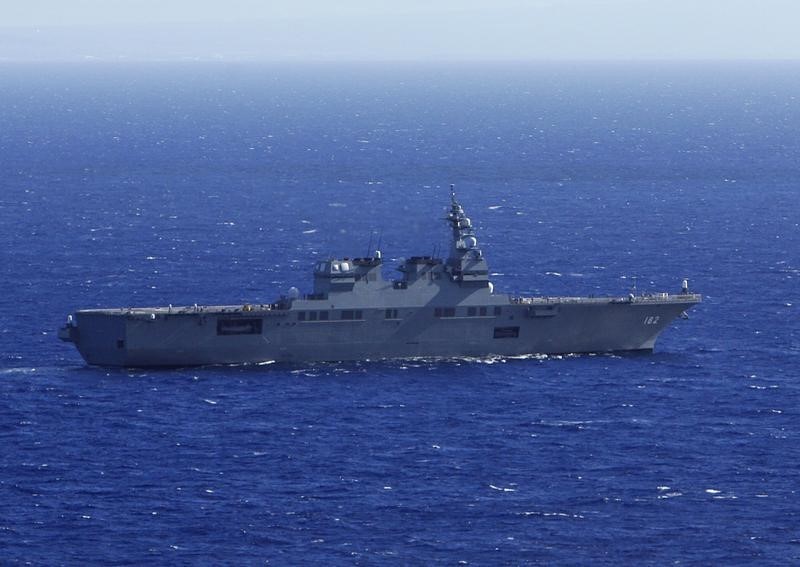By Tim Kelly and Manuel Mogato
TOKYO/MANILA (Reuters) - Japan and the Philippines will hold their first joint naval drill this month in the South China Sea near a disputed shoal claimed by Beijing, sources in Tokyo and the Philippines said.
The May 12 maritime safety exercise, which will practice the code for unplanned encounters at sea, known as CUES, is part of an agreement signed by Japan and the Philippines in January aimed at tightening security cooperation.
The nature of the training is unlikely to worry China unduly, as it has conducted similar exercises with the United States in the past.
But the presence of Japanese naval vessels in the South China Sea signals Japan's growing interest in the region, and may irritate Beijing as criticism of its land reclamation projects there mounts.
"The exercise will not be far from Scarborough Shoal," one of the sources in Japan said, referring to a rocky outcrop which China seized in 2012 after a three-month standoff with the Philippines.
The two-hour practice within Philippines territorial waters near Subic Bay, a former U.S. navy base, will involve a Japanese warship and a Philippines navy frigate, a spokesman at the Philippines Navy said.
A spokesman for Japan's Maritime Self Defense Force declined to comment.
China, which claims about 90 percent of the 3.5 million sq km (1.35 million sq mile) South China Sea, is asserting its territorial claims by building a chain of man-made islands on coral reefs in the Spratly archipelago.
The Philippines, Taiwan, Malaysia, Brunei and Vietnam also claim large parts of the sea.
Recent satellite images show China is reclaiming land around seven reefs in the Spratlys, and is building what appears to be an airstrip on one of the artificial islands.
Although it has no territorial claims in the South China Sea, Tokyo is worried that Beijing's domination of the region could give it control of international waterways through which a significant portion of Japanese trade travels.
Japan's military is considering joining the United States in maritime air patrols in the South China Sea as a counterweight to growing Chinese power, sources familiar with the discussions told Reuters last month.

That strategy, which is being encouraged by the Philippines, is spurring closer security ties between Manila and Tokyo. Their defense agreement in January also established regular vice-ministerial defense talks and exchanges of senior officers.